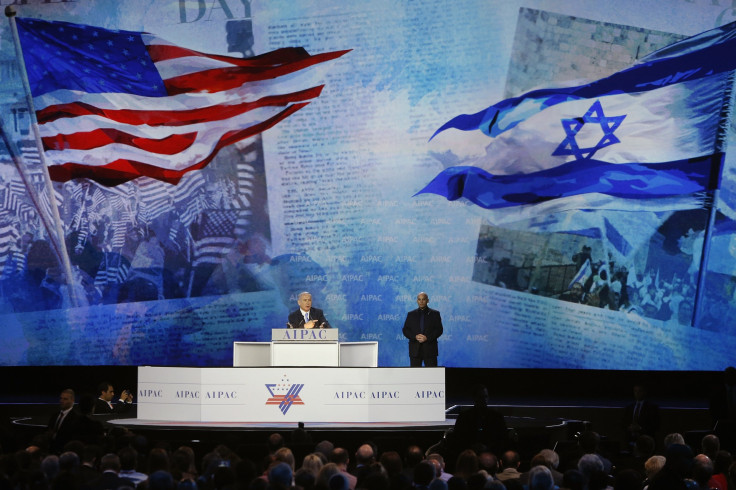AIPAC Conference Live Stream 2016: Watch Donald Trump, Hillary Clinton And Ted Cruz Speak To Pro-Israel Audience

Former Secretary of State Hillary Clinton, GOP front-runner Donald Trump and Texas Sen. Ted Cruz are some of the U.S. presidential candidates and a few of the big names scheduled to address the American Israel Public Affairs Committee (AIPAC) Monday. More than 15,000 people and two-thirds of Congress turn out for the annual policy conference in Washington, D.C., according to a website for the event, making it the largest pro-Israel gathering in the U.S.
Given that it’s an election year, attendees want to hear how candidates plan to deal with a range of issues facing Israel, including the decades long Israeli-Palestinian conflict, the bitterly-contested Iran nuclear deal and the widening influence of Israel’s arch-foe Iran. A live-stream of the event will be available below or on AIPAC’s website, here. Clinton will speak at 8 a.m. EDT and Republican candidates begin at 5 p.m. EDT. Israeli Prime Minister Benjamin Netanyahu is set to speak tomorrow.
AIPAC is a self-declared pro-Israel organization that seeks to strengthen support for Israel among the U.S. public. The organization advocates for an ardently pro-Israel agenda in Congress. It’s considered to wield considerable influence in U.S. politics, and the annual conference has in the past been attended by U.S. presidents, including President Barack Obama in 2012.
Also slated to speak this year are Ohio Gov. John Kasich, Speaker of the House Paul Ryan, House Majority Leader Kevin McCarthy and others. Vice President Joe Biden spoke Sunday evening. Netanyahu, who in the past has met with Obama during his visit, decided to cancel his trip to the U.S. as it coincided with Obama's trip to Cuba next week. The White House said it was surprised to learn Netanyahu’s trip was scrapped and was willing to find an earlier time to meet. He will instead address the event via satellite.
The decision to invite Trump has sparked a wave of controversy. A group of about 40 rabbis said they planned to participate in a protest against Trump’s speech. Jewish leaders have cited a range of issues with the presidential candidate, including his proposed ban on Muslims entering the U.S., his harsh rhetoric toward undocumented immigrants and his stated neutrality on the stalled Israeli-Palestinian peace process. All presidential candidates were invited to take the stage Monday.
© Copyright IBTimes 2024. All rights reserved.





















